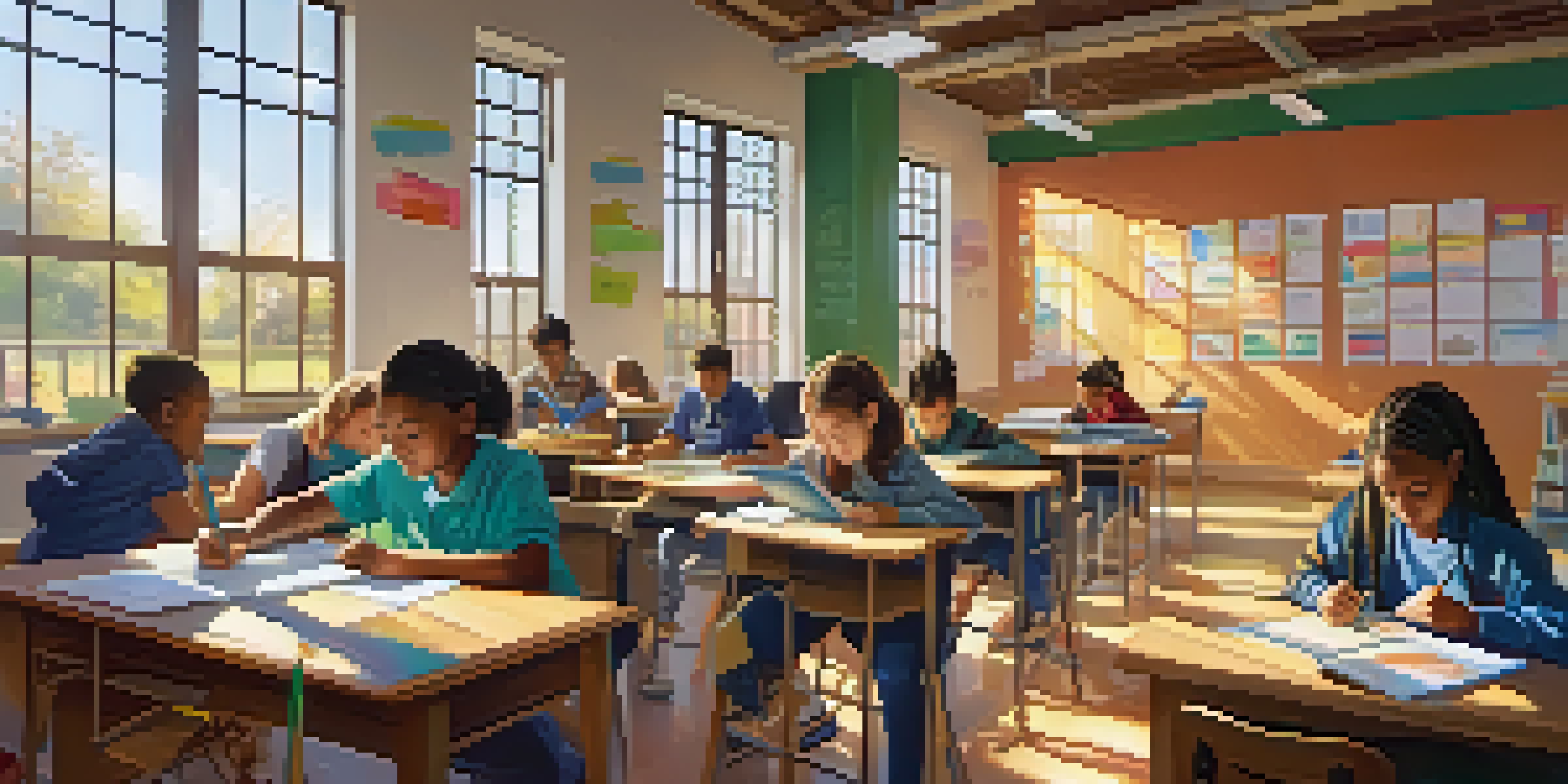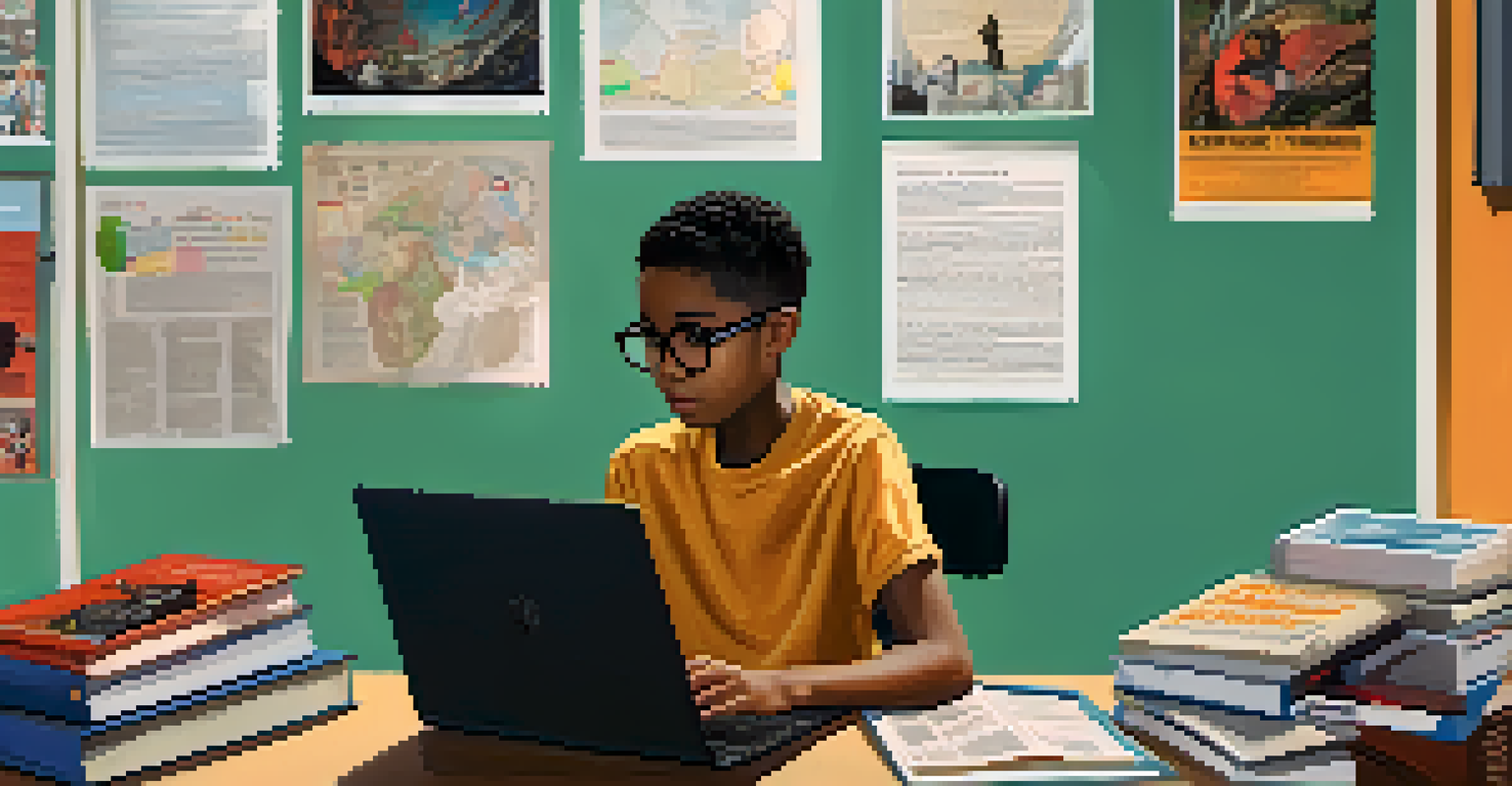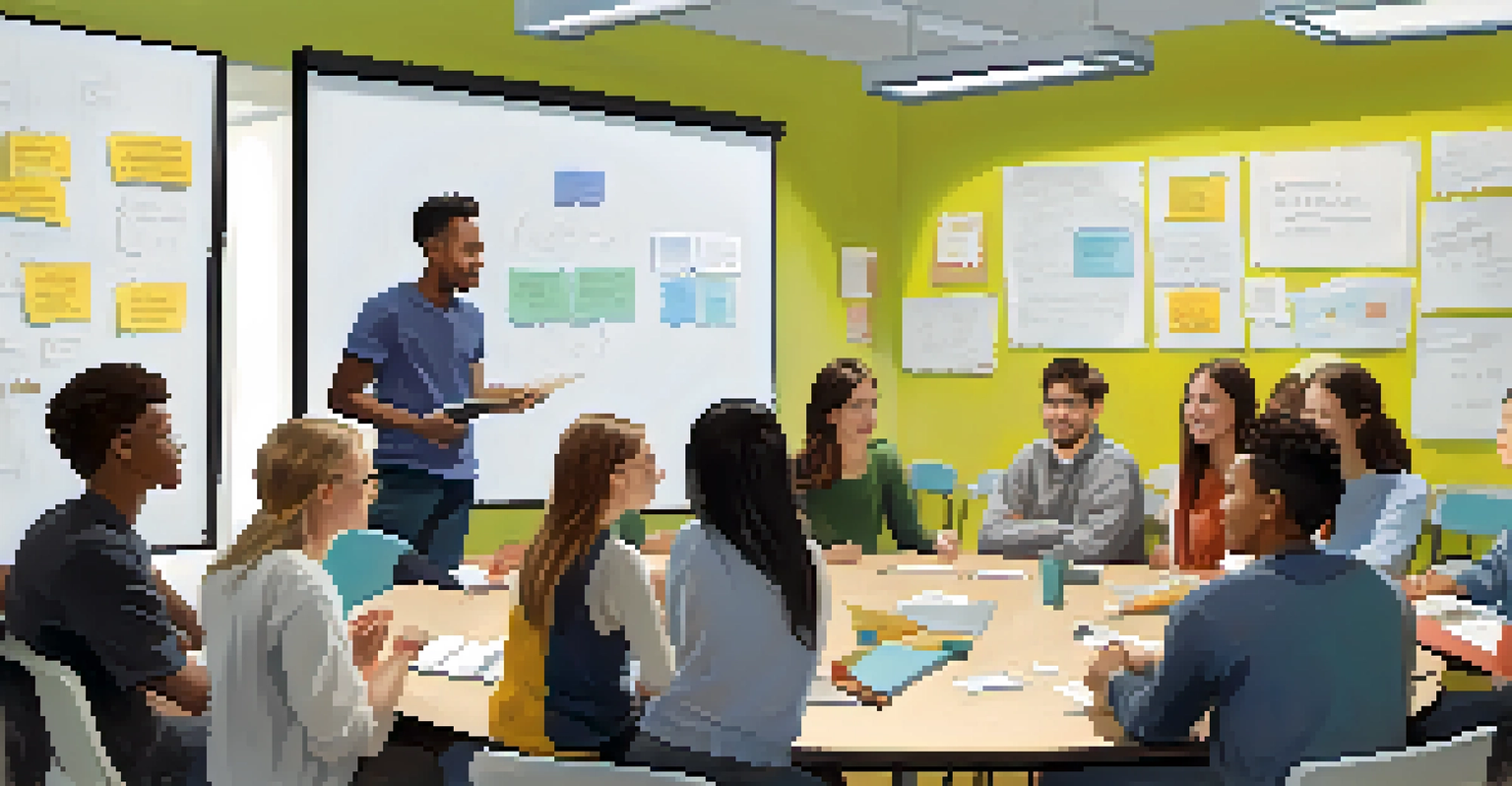Personalized Learning and Its Effects on Critical Thinking Skills

Understanding Personalized Learning: A Brief Overview
Personalized learning is an educational approach that tailors instruction to meet individual student needs. It shifts the focus from a one-size-fits-all model to a more customized experience, allowing learners to progress at their own pace. This method often incorporates technology, enabling students to engage with content that resonates with their interests and learning styles.
Personalized learning is not just about the pace of learning, but about the path of learning, where students are allowed to explore their own interests and passions.
For instance, consider a student who struggles with traditional math lessons. In a personalized learning environment, they might use interactive apps that provide instant feedback and adjust difficulty based on their performance. This not only helps them grasp concepts better but also fosters a sense of ownership over their learning journey.
By recognizing that each student learns differently, personalized learning can create a more inclusive classroom environment. This tailored approach not only addresses academic challenges but also nurtures critical thinking skills by encouraging students to explore subjects in ways that excite them.
The Role of Critical Thinking in Education Today
Critical thinking is the ability to analyze, evaluate, and synthesize information to form reasoned judgments. In today's fast-paced world, this skill is more essential than ever, as students are bombarded with information from various sources. Developing strong critical thinking skills enables learners to navigate complexities in everyday life and make informed decisions.

Educators often emphasize critical thinking as a fundamental goal of education. By engaging students in discussions, debates, and problem-solving tasks, they encourage learners to think deeply about subjects rather than merely memorizing facts. This approach not only helps students become better thinkers but also prepares them for real-world challenges.
Personalized Learning Defined
Personalized learning tailors education to individual student needs, fostering a customized learning experience.
The integration of critical thinking into personalized learning environments allows students to take charge of their educational experience. When learners are given the tools to question, analyze, and reflect, they develop a mindset that values inquiry and creativity.
How Personalized Learning Enhances Critical Thinking Skills
Personalized learning fosters an environment where critical thinking can thrive. By allowing students to pursue their interests and passions, educators can encourage deeper exploration of topics. This autonomy inspires learners to ask questions and seek answers, which are essential components of critical thinking.
Critical thinking is the key to unlocking the full potential of personalized learning, allowing students to analyze, evaluate, and synthesize information effectively.
For example, when a student chooses a project related to their interests—be it climate change or technology—they're more likely to engage critically with the material. They might analyze data, evaluate sources, and develop their conclusions rather than simply regurgitating information. This active engagement is key to honing critical thinking skills.
Furthermore, personalized learning often includes collaborative opportunities where students can share insights and challenge each other’s viewpoints. Such interactions not only deepen understanding but also promote respectful discourse, which is vital for developing strong critical thinking abilities.
The Importance of Feedback in Personalized Learning
Feedback plays a crucial role in personalized learning, particularly in the context of developing critical thinking skills. Continuous feedback helps students recognize areas for improvement and encourages them to reflect on their thought processes. This reflection is a vital step in enhancing critical thinking.
In a personalized learning environment, feedback can be timely and specific, addressing individual needs. For instance, if a student is working on a research project, constructive feedback on their analysis can prompt them to reassess their conclusions and consider alternative perspectives. This iterative process helps students sharpen their critical thinking.
Critical Thinking's Growing Role
Critical thinking is essential in education today, helping students analyze information and make informed decisions.
Moreover, feedback fosters a growth mindset, which is essential for cultivating critical thinkers. When students understand that making mistakes is part of the learning journey, they become more willing to take risks and explore new ideas, ultimately enhancing their analytical skills.
Challenges of Implementing Personalized Learning
Despite its benefits, implementing personalized learning can be challenging. Teachers may face obstacles such as lack of resources, insufficient training, or large class sizes that make individualized attention difficult. These challenges can hinder the effectiveness of personalized approaches in developing critical thinking skills.
Moreover, not all students thrive in a self-directed learning environment. Some learners may struggle with the autonomy that personalized learning provides, leading to feelings of frustration or disengagement. It’s essential for educators to strike a balance between guidance and independence to ensure all students benefit from this approach.
Finally, measuring the impact of personalized learning on critical thinking can be complex. Traditional assessment methods may not capture the nuanced ways in which students develop these skills. Therefore, educators need to explore innovative assessment strategies that reflect the depth of student understanding.
Examples of Personalized Learning in Action
Many schools and educators are successfully implementing personalized learning strategies that promote critical thinking. For instance, project-based learning allows students to dive deep into real-world issues, encouraging them to analyze, evaluate, and present their findings. This hands-on approach not only solidifies knowledge but also enhances critical thinking.
Another example is the use of adaptive learning technologies that adjust content based on student performance. These tools can provide personalized pathways for students, allowing them to engage critically with material at their own pace. As they navigate challenges, they develop problem-solving skills necessary for critical thinking.
Benefits of Feedback in Learning
Continuous feedback in personalized learning helps students reflect on their thought processes and enhances critical thinking skills.
Furthermore, blended learning models that incorporate both online and face-to-face components can foster personalized experiences. By utilizing online resources, students can explore topics in depth and participate in discussions that challenge their thinking, ultimately leading to greater analytical abilities.
Looking Ahead: The Future of Personalized Learning
As education continues to evolve, the future of personalized learning looks promising. Advances in technology, such as artificial intelligence and data analytics, will enable more tailored educational experiences. These innovations will help educators better understand individual student needs, fostering environments where critical thinking can flourish.
Moreover, as personalized learning gains traction, there will likely be a greater emphasis on teaching critical thinking explicitly. Curricula may increasingly incorporate strategies that promote analytical skills, ensuring that students are not only engaged but also well-equipped for the complexities of the modern world.

Ultimately, the integration of personalized learning and critical thinking skills will shape the next generation of learners. By fostering independent, analytical thinkers, we can prepare students to tackle future challenges with confidence and creativity.